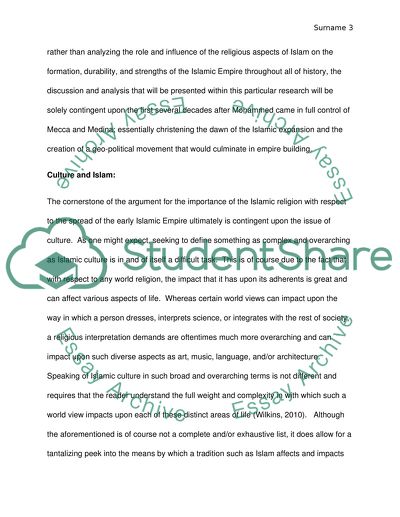Cite this document
(“To what extent was religion behind the successes of the great Arab Essay”, n.d.)
To what extent was religion behind the successes of the great Arab Essay. Retrieved from https://studentshare.org/history/1655298-to-what-extent-was-religion-behind-the-successes-of-the-great-arab-conquests-of-the-seventh-and-eighth-centuries
To what extent was religion behind the successes of the great Arab Essay. Retrieved from https://studentshare.org/history/1655298-to-what-extent-was-religion-behind-the-successes-of-the-great-arab-conquests-of-the-seventh-and-eighth-centuries
(To What Extent Was Religion Behind the Successes of the Great Arab Essay)
To What Extent Was Religion Behind the Successes of the Great Arab Essay. https://studentshare.org/history/1655298-to-what-extent-was-religion-behind-the-successes-of-the-great-arab-conquests-of-the-seventh-and-eighth-centuries.
To What Extent Was Religion Behind the Successes of the Great Arab Essay. https://studentshare.org/history/1655298-to-what-extent-was-religion-behind-the-successes-of-the-great-arab-conquests-of-the-seventh-and-eighth-centuries.
“To What Extent Was Religion Behind the Successes of the Great Arab Essay”, n.d. https://studentshare.org/history/1655298-to-what-extent-was-religion-behind-the-successes-of-the-great-arab-conquests-of-the-seventh-and-eighth-centuries.


